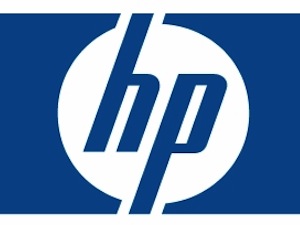HP reportedly considering company 'break up'

PC maker HP is mulling over breaking up the company in a bid to return the maximum value to company shareholders.

Sources familiar with the matter speaking to Quartz said that company directors have "discussed the details of a possible breakup scenario," among other options.
However, one source close to the company, speaking to ZDNet, said that the company wanted to "stay as one HP," seemingly dismissing the Quartz report.
The news outlet's sources say that there is no "overt pressure" to break up the company, and no definitive decisions have been made on the matter.
But at a time where the company's share price has fallen by 75 percent in just over two years, and the firm continues its restructuring effort—in which close to 30,000 jobs will be lost by the end of 2014—shareholders and investors are at the edge of their seats wondering when they will see a financial return.
Investors are, according to the report, wanting more from their financial contributions and believe the PC making behemoth is worth "much more" than its recent share price. It could be that HP might be a better profit generator and money maker as separate companies rather than one giant company.
According to the company's recent 10-K filing with the U.S. Securities and Exchange Commission, HP said:
We also continue to evaluate the potential disposition of assets and businesses that may no longer help us meet our objectives. When we decide to sell assets or a business, we may encounter difficulty in finding buyers or alternative exit strategies on acceptable terms in a timely manner, which could delay the achievement of our strategic objectives. We may also dispose of a business at a price or on terms that are less desirable than we had anticipated.
This sent a signal suggesting that HP would sell off certain units, such as troublesome divisions that have cost the PC maker money—like Autonomy—or aren't generating profit.
It's somewhat resonant of former chief executive Leo Apotheker's move to spin off HP's PC making division. The move was rejected by investors and he was forced out. Current HP chief executive Meg Whitman reversed the decision and brought the PC making unit back to the top of PC manufacturing tables.
Sources speaking to Quartz said that those vetoed decisions are now floating back into the minds of investors.
Despite the troubles the company faces, sources close to the situation said that Whitman is has no plans to sell its Autonomy and EDS business units, despite numerous offers from outside firms.
HP, which remains at the top of the PC manufacturing leader board, according to recent IDC figures, recently said in its fourth quarter filing with the U.S. Securities and Exchange Commission (SEC) that Autonomy had engaged in "serious accounting improprieties" before it was bought by HP in 2011, and the computing giant ultimately had to swallow an $8.8 billion charge as a result.
A HP spokesperson said that the company does not comment on speculation.